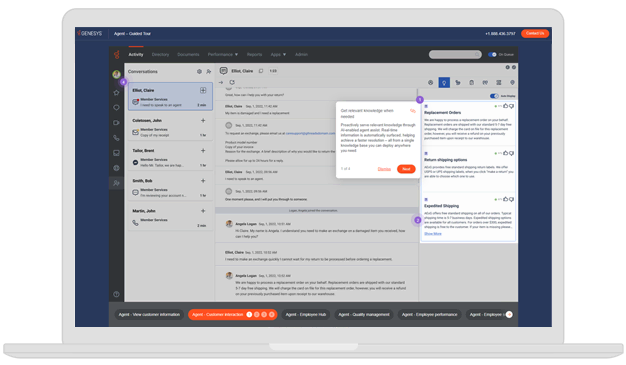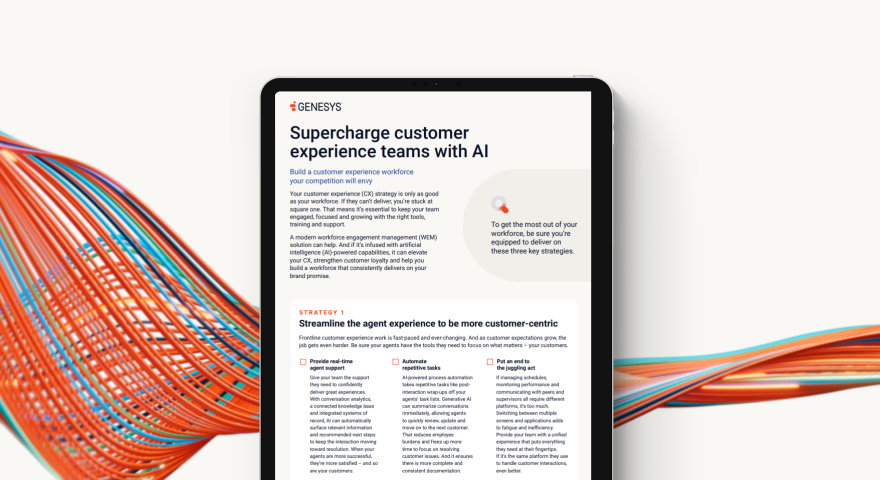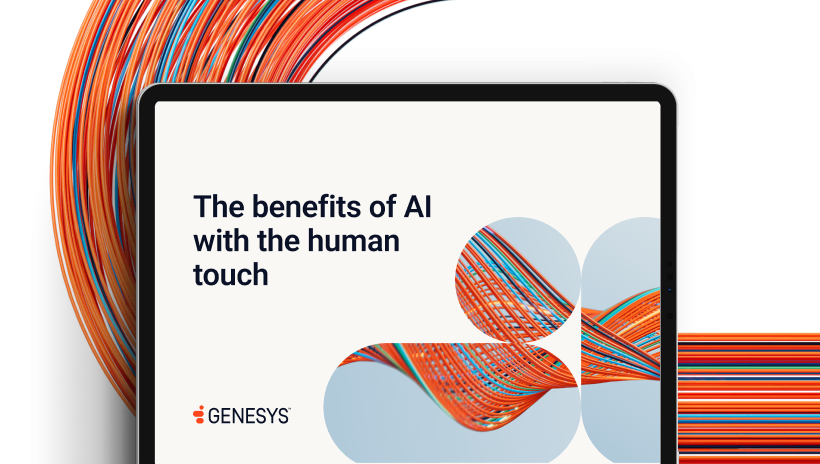Speech and sentiment analysis
Speech and sentiment analysis are AI tools that help contact centers better understand customer conversations. Speech analysis turns spoken words into text so systems can process them. Sentiment analysis looks at the tone, words and emotion in a customer’s voice or message to figure out how they feel.
Together, these tools help agents respond more quickly and with empathy. They also give leaders insights into customer moods, call quality and agent performance. This leads to better service, faster problem-solving and more satisfied customers. These are all key for growing a strong, customer-focused business.
Intelligent routing systems
Intelligent routing systems use AI to match customers with the best available agent or resource in a contact center. These systems look at things like customer needs, past interactions, agent skills and even customer mood. They then route the interaction to the agent most likely to solve the issue quickly and effectively.
This helps reduce wait times, improve first-contact resolution and boost customer satisfaction. Intelligent routing leads to better use of staff, faster support and a smoother experience for customers and agents.
Agentic AI
Agentic AI can make autonomous decisions and take frequent actions with minimal to no human intervention. It learns from every interaction, continuously optimizing outcomes and self-adjusting its strategies by interpreting data and context as it works.
Real agentic AI operates with freedom, solving dynamic, non-deterministic problems and executing without relying on rigid, predefined paths. The ability to operate independently in this way can enhance responsiveness, reduce human error and improve customer experiences by delivering the right actions at the right time.
Differences between traditional and AI-powered contact centers
Traditional contact centers rely primarily on human agents to handle calls, emails and chats. They often use basic tools and follow fixed scripts. AI-powered contact centers use smart technologies like chatbots, voice recognition and machine learning to automate and improve service. These systems can handle common questions, understand customer emotions and route issues to the right agent.
AI also gives leaders real-time insights into performance and customer trends. Traditional centers can be slower and more costly. AI-powered ones offer faster responses, better personalization and improved efficiency. All of this helps businesses grow while keeping customers happy.
Common misconceptions about AI in customer service
Some think AI in customer service means replacing human agents. In fact, this can be a concern among agents when AI is implemented — but it’s not true. AI is meant to support customer service teams, not take over their jobs.
Some also believe AI can’t provide a personal touch. Yet modern tools can understand tone, language and emotion to offer more tailored help. Others worry AI is too complex or expensive, but many solutions are easy to use and cost-effective. A common myth is that customers dislike AI, but many enjoy faster answers and 24/7 support.
The truth is, when used right, AI helps agents work smarter and creates better experiences for everyone.
Core benefits of AI contact center solutions
There are a number of reasons to use AI in a contact center environment, a number of benefits that AI provides that you can’t get from other solutions. These benefits make AI a critical part of any modern contact center going forward.
Increased efficiency and cost reduction
AI automates routine tasks like answering common questions, routing calls and updating records. Chatbots and virtual agents can handle many customer needs 24/7, freeing up human agents to focus on more complex issues. AI also helps agents work faster by suggesting answers, analyzing customer tone and predicting next steps.
This leads to shorter call times, fewer repeat contacts and better use of staff. By reducing the need for large teams and reducing handle time, AI helps cut costs while improving service quality. This makes the contact center more productive and cost-effective.
Enhanced accuracy and consistency in customer interactions
AI uses data and rules to deliver reliable responses every time. Chatbots and virtual assistants follow set guidelines, so they don’t make errors or forget details like a human might. AI tools can also suggest accurate answers to agents in real time, helping them stay on track and avoid mistakes.
Sentiment analysis helps agents respond in the right tone. Plus, AI learns from past interactions, so it keeps improving. This consistency builds trust, ensures customers get the right help quickly and supports a smoother, more professional service experience across every channel.
Reduced agent burnout through intelligent assistance
AI reduces agent burnout by taking care of repetitive and stressful tasks, allowing agents to focus on more meaningful work. Intelligent assistance tools, like real-time suggestions, call summaries and knowledge prompts, help agents respond faster and with more confidence. AI can also detect when a customer is frustrated and alert a supervisor or offer support tips.
By handling simple questions through chatbots, AI lowers the number of routine calls agents must handle. This leads to shorter shifts, fewer mistakes and less stress. With AI support, agents feel more in control, stay motivated and deliver better customer service.







